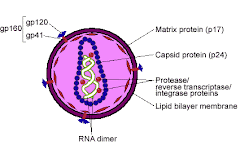"Crack, like most other recreational drugs besides alcohol, is illegal. The Harrison Narcotics Tax Act of 1914 banned the non-medical use of cocaine and prohibited its importation into the United States. With the Controlled Substances Act of 1970, the U.S. Congress classified cocaine as a Schedule II substance, meaning that it is considered a highly addictive drug. The classification stipulated that cocaine could only be used legally as an anesthetic for certain surgeries, and it is still used in this manner today.
Penalties for using and dealing cocaine are stringent. In 2002, the Drug Enforcement Administration (DEA) arrested 4,400 people for crimes related to crack cocaine. Crack accounted for 15 percent of the DEA's arrests that year. Nearly 83 percent of those arrested were African-American; 9 percent were Hispanic; and 7 percent were Caucasian.
Penalties and prison terms for crack users and sellers are harsher than for most other drugs. Crack-related prison terms are an average of nine-and-a-half years longer than other drug sentences. A dealer who sells 5 grams of crack can land in jail for up to 20 years. Selling 50 or more grams can result in a life sentence.
While local law enforcement officials try to round up crack users and sellers, the government is working to stop cocaine from getting into the country. In 2002, U.S. Customs officials seized more than 171,000 pounds (about 77,560 kg) of cocaine as smugglers attempted to move it across the border."
Thursday, September 20, 2007
Addressing The "Crack" Problem---Imprisonment
Blogs'FamilyCorruptionInTheBigEasy||
FamilyCorruptionInTheBigEasy: Part 2
Posted by
Boop
at
12:00 AM
![]()
Labels: crack use, imprisonment, penalties
Subscribe to:
Post Comments (Atom)


















No comments:
Post a Comment